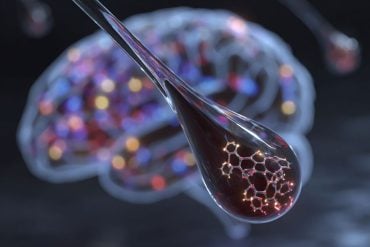Summary: Obstructive sleep apnea (OSA) contributes to significant memory decline, especially in visual and verbal working memory, according to a new review of human and animal studies. Key features of OSA, intermittent hypoxia and sleep fragmentation, drive brain inflammation, oxidative stress, and neuronal injury, impairing memory and cognition.
The severity and duration of OSA correlate strongly with worse memory performance, with biomarkers like the Oxygen Desaturation Index offering measurable insight. While CPAP remains the frontline treatment, researchers call for better diagnostics and emerging therapies to address this underrecognized cognitive impact.
Key Facts:
- Biological Damage: OSA triggers neuroinflammation, oxidative stress, and synaptic dysfunction.
- Cognitive Correlation: Memory impairment severity correlates with OSA intensity and duration.
- Treatment Gaps: CPAP helps but new diagnostics and therapies are needed for full cognitive protection.
Source: Marshall University
Obstructive sleep apnea (OSA), commonly associated with cardiovascular and metabolic diseases, also plays a significant but less recognized role in memory decline, according to a new review published in Sleep Medicine Reviews.
Researchers from the Marshall University Joan C. Edwards School of Medicine and Shanghai Jiao Tong University School of Medicine reviewed evidence from human and animal studies showing that OSA patients often experience notable memory impairments, particularly in visual and verbal working memory.

They report that key features of OSA—intermittent hypoxia (IH) and sleep fragmentation (SF)—trigger biological processes such as neuroinflammation, oxidative stress, neuronal injury, altered synaptic plasticity, and blood-brain barrier dysfunction, all of which contribute to cognitive decline.
Disease severity and duration are strongly linked to poorer memory performance, with measures like the Oxygen Desaturation Index (ODI) correlating with the extent of impairment.
While continuous positive airway pressure (CPAP) therapy remains the most effective treatment for protecting cognitive function, the authors stress the need for additional therapies and more precise diagnostic tools to identify and manage OSA-related memory dysfunction.
Early changes observed through brain imaging, EEG, and blood biomarkers may serve as emerging predictors of cognitive decline.
The review was co-authored by Drs. Xiaoman Zhang, Huajun Xu, and Shankai Yin of Shanghai Jiao Tong University, and Drs. David Gozal and Abdelnaby Khalyfa of Marshall University.
Dr. Zhang completed a six-month research scholar program in Khalyfa’s lab at Marshall University, collaborating with Khalyfa and the team to develop this review article.
The authors also highlight future research directions, including the role of gut microbiota, genetic factors, and epigenetic changes in OSA-related memory decline. They suggest that multidimensional clinical profiling could support the development of personalized treatment strategies.
Funding: The study was supported by the Ministry of Science and Technology of the People’s Republic of China (STI2030-Major Projects 2021ZD0201900), the National Institutes of Health (HL166617, HL169266), and the Joan C. Edwards School of Medicine at Marshall University.
About this sleep apnea and memory research news
Author: Sheanna Spence
Source: Marshall University
Contact: Sheanna Spence – Marshall University
Image: The image is credited to Neuroscience News
Original Research: Open access.
“Obstructive sleep apnea and memory impairments: Clinical characterization, treatment strategies, and mechanisms” by Xiaoman Zhang et al. Sleep Medicine
Abstract
Obstructive sleep apnea and memory impairments: Clinical characterization, treatment strategies, and mechanisms
Obstructive sleep apnea (OSA), is associated with dysfunction in the cardiovascular, metabolic and neurological systems.
However, the relationship between OSA and memory impairment, intervention effects, and underlying pathways are not well understood.
This review summarizes recent advances in the clinical characterization, treatment strategies, and mechanisms of OSA-induced memory impairments.
OSA patients may exhibit significant memory declines, including impairments in working memory from visual and verbal sources.
The underlying mechanisms behind OSA-related memory impairment are complex and multifactorial with poorly understood aspects that require further investigation.
Neuroinflammation, oxidative stress, neuronal damage, synaptic plasticity, and blood-brain barrier dysfunction, as observed under exposures to intermittent hypoxia and sleep fragmentation are likely contributors to learning and memory dysfunction.
Continuous positive airway pressure treatment can provide remarkable relief from memory impairment in OSA patients.
Other treatments are emerging but need to be rigorously evaluated for cognitive improvement.
Clinically, reliable and objective diagnostic tools are necessary for accurate diagnosis and clinical characterization of cognitive impairments in OSA patients.
The complex links between gut-brain axis, epigenetic landscape, genetic susceptibility, and OSA-induced memory impairments suggest new directions for research.
Characterization of clinical phenotypic clusters can facilitate advances in precision medicine to predict and treat OSA-related memory deficits.







